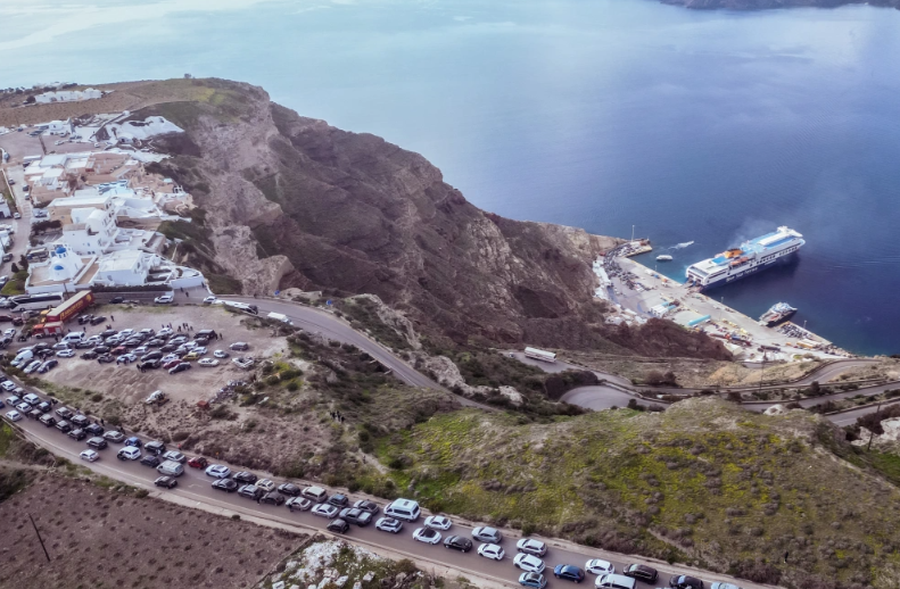
Renowned Professor of Geology and Natural Disaster Management, Efthimios Lekkas, in a statement this evening regarding the increased seismic activity between Santorini and Amorgos, attempted to calm the residents of the two islands.
Lekkas explained that the scenario of a magnitude 6 earthquake on the Richter scale is highly unlikely to occur and that the residents of Santorini should feel safe.
"This morning at 4:40 we had an earthquake with a magnitude of 4.9 on the Richter scale. The evening was relatively calm, but then we had an increase. We estimate that this seismic activity will continue in the coming days. These earthquakes occur slowly and gradually. I would like an earthquake between 5.2 and 5.3 on the Richter scale to occur sooner. We estimate that an earthquake with a magnitude of up to 5.5 would not have an impact on the island. There should be no panic to flee. I have found that mainly foreigners work here," he initially said on MEGA television.
Regarding the hypotheses about the reawakening of the volcano on which the rock on which the island of Santorini lies rises, a theory that has been circulating in the last day, Lekkas said that it will take approximately 17,000 years for the Santorini volcano to erupt again.
“The epicenter of the earthquake is shifting, moving northeast towards Amorgos. This means that it is moving away from Santorini, which is a good thing, but it is heading towards Amorgos. Amorgos is not as vulnerable as Santorini. The effects of an earthquake will be smaller on Amorgos than on Santorini. This has nothing to do with the volcano. It is not that there is no volcanic activity, it has been there for thousands of years. We have calculated that it will take approximately 17,000 years for the Santorini volcano to erupt again. The volcano has erupted every 20,000 years in the last 200,000 years,” the professor assessed.
Asked about the noise heard in the last few hours on the islands, Lekkas explained that it is the result of surface processes and not the earthquake itself. As he said, the noise comes mainly from the diffusion of sound waves and in some places it is intense and in others not.
"It is an inductive process and has nothing to do with the earthquake. Unless the earthquake is at a close distance, that is, at 1-2 kilometers or at a shorter distance. Then the sound of the earthquake is heard. At greater distances, no sound is heard," Lekkas emphasized. (A2 Televizion)











